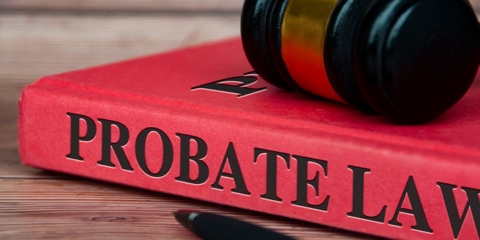Understanding Digital Asset Inheritance
Defining Digital Assets in Estate Planning
In the ever-evolving digital age, estate planning has expanded beyond tangible assets to encompass the vast array of digital properties we accumulate. Digital assets can include anything from social media accounts and online banking credentials to cryptocurrency holdings and digital intellectual property such as blogs, photos, or manuscripts. These assets are integral to our personal and professional lives, often holding both sentimental and monetary value. As we continue to integrate technology into every facet of our existence, it becomes imperative to consider these digital assets in our estate plans to ensure they are managed according to our wishes after we pass away.
However, defining and cataloging digital assets can be a complex task. Unlike physical assets, digital ones may not be immediately apparent or tangible. They often require specific knowledge of usernames, passwords, and the platforms on which they exist. Additionally, the value of digital assets can fluctuate wildly, as seen with the volatile nature of cryptocurrency markets. It is crucial for individuals to provide a comprehensive list of their digital assets, along with instructions on how they should be handled, to avoid these assets being lost in the digital ether upon their passing.
Legal Challenges in Digital Asset Management
When it comes to managing digital assets in an estate plan, a myriad of legal challenges can arise. Privacy laws, such as the General Data Protection Regulation (GDPR) in the European Union and various state laws in the United States, can restrict access to digital information. Moreover, terms of service agreements for online platforms often have specific provisions regarding the transferability of accounts and data upon a user's death. These legal barriers can make it difficult for executors and beneficiaries to retrieve or manage digital assets unless proper planning is done in advance.
For instance, some social media platforms have policies that do not allow the transfer of an account's ownership, while others may provide options to memorialize or delete an account posthumously. Navigating these regulations requires a nuanced understanding of both the digital realm and the legal landscape. It is essential to consult with legal professionals who specialize in estate planning to ensure digital assets are appropriately included in one's estate and that heirs can legally access them without breaching privacy laws or terms of service agreements.
Estate Planning Strategies for Digital Assets
Incorporating Digital Assets into Your Will
Effectively including digital assets in a will demands meticulous attention to detail and foresight. It's not as simple as listing physical properties; one must consider the sensitive nature of digital information. To start, individuals should compile a detailed inventory of their digital assets, including login credentials, without compromising their security. This list should be kept in a secure location, such as a safe deposit box or with an attorney, and updated regularly to reflect any changes. The will itself can then reference this list and provide clear instructions on how these assets should be handled, whether it's transferring ownership, archiving data, or deleting accounts.
It's also important to understand that including digital assets in a will does not negate the need for adherence to platform-specific policies. For instance, some online services may require additional steps or documentation to transfer user data or close accounts. Therefore, when drafting a will, it's advisable to work with an attorney who can help navigate these intricacies and ensure that the inclusion of digital assets complies with all applicable laws and service agreements.
Creating a Digital Executor
The concept of a digital executor is becoming increasingly relevant as our digital footprints expand. A digital executor is an individual designated in a will or estate plan to manage the digital assets of the deceased. This role includes a range of responsibilities, from closing online accounts to preserving digital photos and other important files. The chosen digital executor should be tech-savvy and trustworthy, as they will be handling sensitive information and tasked with executing the deceased's digital wishes. It's also wise to provide them with legal authority and detailed instructions to avoid any potential disputes or confusion.
When selecting a digital executor, it's crucial to consider their ability to navigate both the digital landscape and the emotional complexities that may arise from handling personal digital content. They should be prepared to work closely with the traditional executor of the estate to ensure cohesive management of both digital and physical assets. Additionally, the digital executor must understand the legal limitations of their role and the importance of respecting the privacy and wishes of the deceased, making this a role that should not be assigned lightly.
Probate Process for Digital Assets
Navigating Probate Laws for Online Assets
The probate process can be a daunting journey, and the inclusion of digital assets adds another layer of complexity. Probate laws that govern the distribution of a deceased person's estate are not always up-to-date with the nuances of digital assets. This can lead to uncertainty and potential complications. For example, some online assets may not be considered "property" in the traditional sense, and thus may not pass through probate in the same way physical assets do. Additionally, the decentralized nature of certain digital assets, like cryptocurrency, can pose unique challenges in terms of jurisdiction and legal recognition.
Executors and beneficiaries must be aware of these potential hurdles and prepare accordingly. This might involve consulting with legal professionals who have expertise in both probate law and digital asset management. Understanding how different types of digital assets are treated under current probate laws is essential for a smooth transition of these assets to the intended beneficiaries. It's also important to keep abreast of any changes in legislation that may affect the probate process for digital assets, as this is a rapidly evolving area of law.
Accessing and Valuing Digital Assets Post-Mortem
After the death of an individual, executors face the task of accessing and valuing digital assets for estate tax purposes and distribution. This process can be challenging, as it often requires navigating through layers of security and privacy measures that were designed to protect the owner's digital information. Executors may need to contact service providers directly and provide proof of death and legal authority to act on behalf of the deceased's estate. This can be a time-consuming and complex process, especially if the deceased did not leave behind a comprehensive list of digital assets and instructions for access.
Valuing digital assets is another critical step in the probate process. Some digital assets, like domain names or online businesses, may have significant monetary value, while others, such as personal photographs or emails, may hold more sentimental worth. Appraisers may be needed to determine the fair market value of certain digital assets, and this valuation must be included in the estate's inventory for tax purposes. It's important for executors to understand the different types of digital assets and how to assess their value to ensure they fulfill their fiduciary duties and properly manage the digital estate.
Protecting Digital Legacy and Privacy
Ensuring Privacy and Security in Digital Estate Transition
As the digital world becomes increasingly intertwined with our personal lives, protecting the privacy and security of digital assets during an estate transition is paramount. Executors must take steps to safeguard sensitive information and prevent unauthorized access to the deceased's digital life. This includes changing passwords, securing data storage devices, and ensuring that only those with legal rights can access the deceased's digital assets. It's also important to consider the use of encryption and other security measures to protect data during the transfer process.
Moreover, the executor should be aware of the risks associated with digital assets, such as identity theft or fraud. They must act swiftly to close or transfer accounts to prevent any malicious activities. This responsibility underscores the need for a comprehensive digital estate plan that includes not only instructions for the distribution of assets but also measures for protecting those assets and the privacy of the deceased during the transition period. Working with an attorney who specializes in estate planning and digital asset management can provide the necessary guidance to ensure these protections are in place.
Posthumous Digital Footprint Management
Managing the digital footprint of the deceased is a delicate task that requires sensitivity and respect for their legacy. Executors must decide how to handle various online presences, from social media profiles to personal blogs. Some platforms offer options to memorialize accounts, allowing friends and family to view and interact with the profile as a tribute to the deceased. In other cases, it may be appropriate to completely close accounts to protect privacy and prevent ongoing maintenance. Executors should also consider the wishes of the deceased, as some may have left instructions for how they want their digital presence handled after their death.
Content created by the deceased, such as videos, writings, or artwork, should be preserved according to their wishes or the best interests of the beneficiaries. This might involve archiving digital content, transferring ownership to heirs, or deleting files if requested. The executor's role is to balance the preservation of the deceased's digital legacy with the privacy and emotional well-being of the surviving loved ones. Clear communication with family members and beneficiaries about the steps being taken to manage the digital footprint can help ease the transition and honor the memory of the deceased.
Future Considerations and Legal Developments
Anticipating Changes in Digital Asset Laws
As technology continues to advance at a rapid pace, legal frameworks are struggling to keep up. The laws surrounding digital assets are still in their infancy, and changes are inevitable as legislators seek to address the complexities of the digital world. Estate planning professionals and individuals alike must stay informed about these legal developments to ensure that digital assets are managed effectively and in compliance with the law. Current trends suggest an increase in legislation aimed at clarifying the rights of digital asset holders and their heirs, as well as the responsibilities of online service providers in the context of estate planning.
One can anticipate that future legal developments will likely focus on providing clearer guidelines for the transfer and management of digital assets after death. This may include the creation of standardized processes for executors to access digital assets and the establishment of digital property rights. Staying ahead of these changes is crucial for anyone involved in estate planning, as it can impact the strategies used to protect and distribute digital assets. Working with legal professionals who specialize in this area and who are committed to ongoing education about the latest legal trends is essential for effective estate planning in the digital age.
Technological Advances Impacting Digital Estate Management
Emerging technologies such as blockchain are poised to revolutionize the way we manage digital assets in estate planning. Blockchain's inherent features of decentralization, transparency, and security make it an attractive option for managing digital assets in a way that is both efficient and resistant to tampering. Smart contracts, for example, could automate the transfer of digital assets upon death, executing the terms of a will without the need for intermediaries. As these technologies develop, they have the potential to simplify the estate planning process and provide greater control and privacy for individuals managing their digital legacies.
However, with new technologies come new challenges. Estate planners and executors must be prepared to understand and navigate these advancements to effectively manage digital assets. This may involve learning about cryptocurrency wallets, NFTs (non-fungible tokens), and other digital property that may not have been considered in traditional estate planning. Keeping abreast of technological changes is not just advisable; it is becoming a necessity for those who wish to ensure their digital assets are properly handled in the future. As technology evolves, so too must our strategies for protecting and passing on our digital estates.
Do Not Hesitate to Reach Out to Pearson Butler
At Pearson Butler, we offer comprehensive estate planning services that include the management of digital assets. Our team of experienced attorneys understands the unique challenges posed by digital asset inheritance and is equipped to provide guidance tailored to your individual needs. If you're looking to secure your digital legacy and ensure your assets are handled according to your wishes, contact Pearson Butler today. Let us help you navigate the complexities of digital estate planning and protect what matters most in the digital age.
Call Pearson Butler now at (800) 265-2314 or send us a message online.




[1].jpg)
